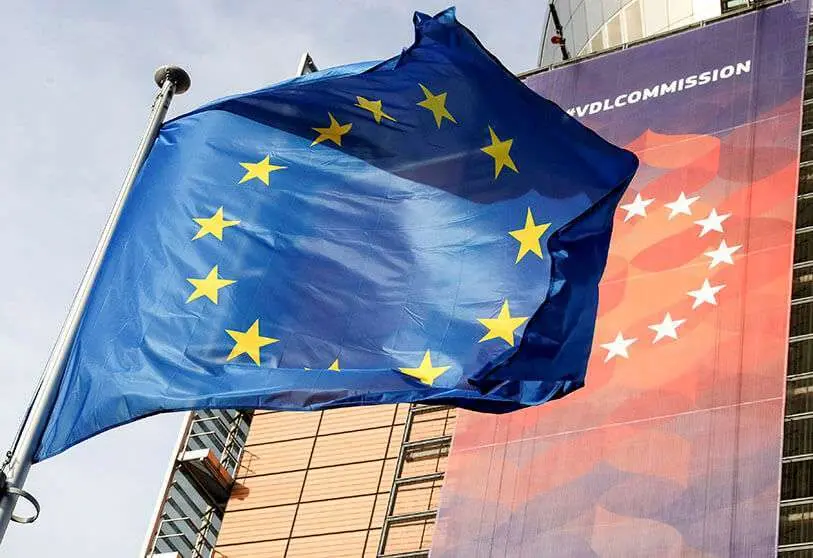Reactivating responsibility

It is common to hear about the funds of the Next Generation EU Plan as one of the main drivers of the EU's economic recovery from the pandemic, especially in Spain. These are extraordinary funds that are the result of a historic agreement that has led to the Commission's budget being increased to values close to 2% of European GDP and, for the first time, to the issue of common debt. But are they going to allow us to get out of the economic crisis resulting from the COVID-19? The answer is no, or at least not completely.
The answer is no, or at least not entirely. The responsibility for reviving the economy lies with the states themselves, which are the ones that have the fiscal policy instruments-taxes, public expenditure and transfers-to affect economic activity, the most standardised measure of which is the rate of GDP growth. The Commission, whenever it is given the opportunity, and the ECB, which insists that Member States spend whatever is necessary, remind us that Frankfurt will always be there to help them finance themselves with an expansive monetary policy whose duration seems endless. The success or otherwise of each state's recovery from the crisis will depend almost exclusively on its economic policy and its production structure, not on the Next Generation EU funds, which we will otherwise be slow to receive.
The Next Generation EU Plan does not seek a recovery of the economy to bring it back to pre-pandemic values, but rather the transformation of those economies. The main lines of action will be research and development, digital transformation, the fight against climate change and the modernisation of traditional policies. This approach is a far cry from the Plan E with which Spain tried to tackle the financial crisis of 2008, when the only objective was to spend, no matter how much. With the Plan proposed by the Commission, states are obliged to present specific projects for economic transformation - large infrastructures, sports centres or roads are no longer worthwhile - and here our country leaves much to be desired, especially after it became known that over the last 10 years only a little over 30% of the structural funds to which it was entitled have been used due to a lack of projects.
While the first arrival of the Next Generation EU funds - 10% of the 140 billion potentially available to Spain - is scheduled for this summer, more than a year after the agreement for the creation of the Plan, the ECB is acting swiftly and decisively to provide the states with liquidity. At the last meeting of the ECB's Governing Council, its asset purchase programme was increased by 500 billion euros to 1.85 trillion euros, with a commitment to maintain the stimuli for as long as necessary. This monetary policy is allowing states to finance themselves at very low (even negative) rates, benefiting countries that would otherwise be penalised by the markets, such as Spain, Italy or France. The dark side of this purchasing programme is the increase in the ECB's balance sheet to 7 trillion euros, 62% of the eurozone's GDP, as well as the generation of perverse incentives to get into debt.
In the case of Spain, the problem is not the capacity to get into debt, which is good, but what it is for. The public debt-to-GDP ratio, the most widely used when comparing, is quantitative, while the differential between the economic recovery forecasts of the different EU countries is due to qualitative elements. It is not so important to get into debt, but rather for what purpose: if the debt is to modernise the economy, generate more and better jobs or boost the transformation of the productive structure, it could be considered an investment. If the debt is used to pay public wages, RETs or subsidies, this debt would become entrenched. The two options involve equal disbursement of public funds, but they are not the same.
In short, the Next Generation EU funds can help, even if they come late, but they will not be "the engine" of economic revival, as many institutions claim. The ECB is helping to contain the economic impact quickly and quickly, as the situation requires, becoming a true hero of this recession. In the case of Spain, as in the rest of the Member States, the ability to emerge from the crisis will depend on its economic policy, not so much on the role of the European funds, which, for their part, are seeking to transform the economy, not to rebuild what existed before. This crisis may be the last that the Eurozone faces without progressing in its fiscal integration. Once again, we will see the United States, with a coordinated fiscal and monetary policy, emerge from the crisis earlier than the euro area as a whole.
Albert Guivernau Molina. Professor of Economics and member of the Jean Monnet Chair in European Tax Integration at the Universitat Abat Oliba CEU
